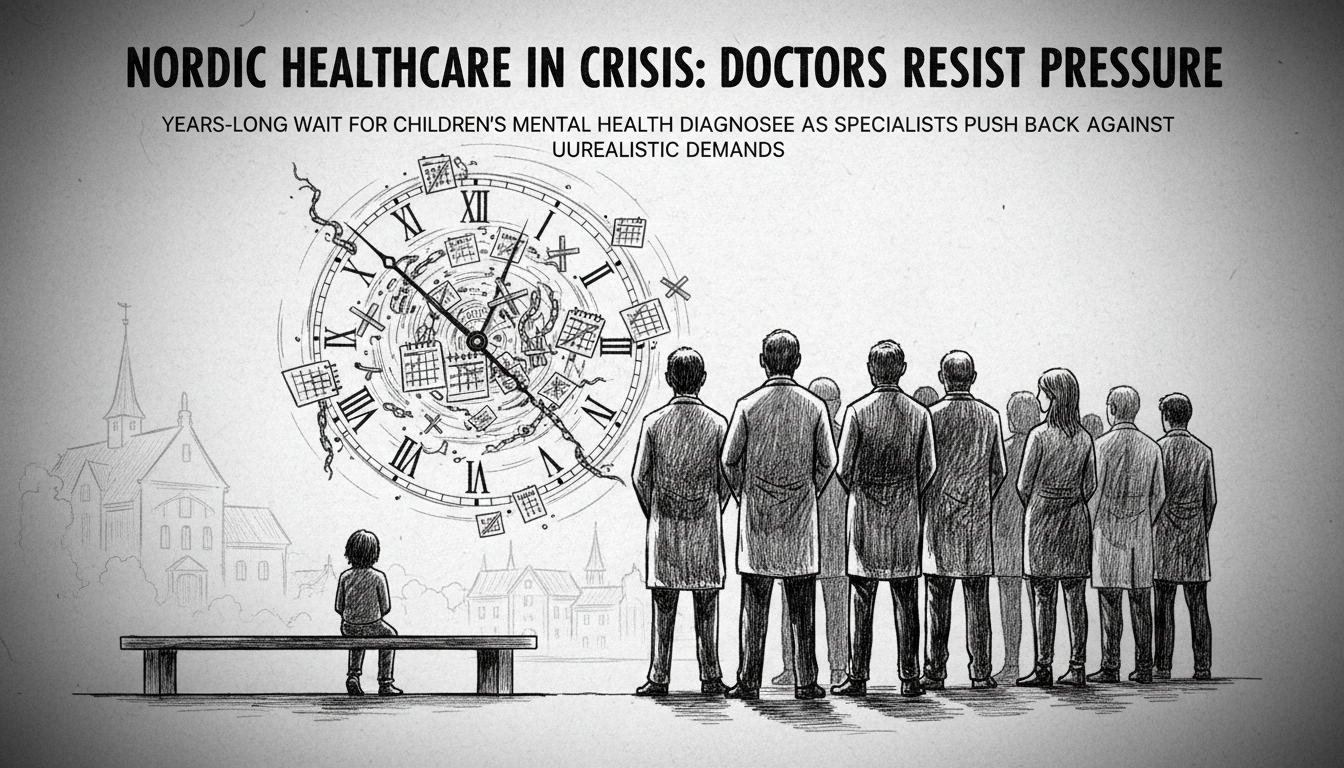Children and teenagers in Northern Denmark face months-long waits for diagnosis of anxiety, ADHD, and other mental health conditions. The region has some of the country's longest waiting times in child and youth psychiatry. During the election campaign, multiple candidates for the regional council have pointed to doctors as part of the problem.
Candidates from several parties believe waiting lists could be reduced if individual psychiatrists treated more patients. But the Young Doctors union says this approach is not sustainable.
Michael Sloth Trabjerg, deputy chair of Young Doctors in Northern Denmark, expressed concern about increasing treatment tempo. He said pushing doctors harder could create workplace dissatisfaction and lead to more sick leave. It might also drive doctors toward private healthcare systems.
He acknowledged the long waiting lists represent a serious problem. We all want to help these children and their families as effectively as possible, Trabjerg stated. But this is not just about speed. It is about professional standards and proper diagnosis and treatment.
Conservative lead candidate Pia Buus Pinstrup is among politicians wanting psychiatrists to treat more patients. She noted in a podcast interview that general practitioners see 52 patients daily while psychiatrists see only one and a half patients. She called this a huge gap.
Pinstrup does not share concerns that psychiatrists would leave hospital positions for private practice if required to treat more patients. She said psychiatrists in the public system have high professional pride. The private system cannot match the professional standards we have in the regional system, she claimed.
Northern Denmark's mental health crisis reflects broader challenges across the Nordic healthcare model. The region's famous universal healthcare system struggles with specialized services outside major urban centers. This creates geographic disparities in access to care.
Michael Sloth Trabjerg urges regional politicians to improve workflow efficiency rather than demanding doctors see more patients. He also calls for accelerated recruitment of new doctors. Waiting lists have been increasing because more children and teenagers get referred to psychiatry, he explained. We have not kept pace with the need for specialist doctors.
According to public waiting time data, children in Northern Denmark currently wait 89 weeks for ADHD, autism, and anxiety assessments. This nearly two-year delay occurs during critical developmental periods when early intervention matters most.
The political debate highlights tension between quick solutions and sustainable healthcare. Politicians face pressure to show immediate results while medical professionals emphasize systemic improvements. This conflict appears across Nordic countries as healthcare budgets strain under growing demand.
The situation raises questions about mental health prioritization within universal healthcare systems. Physical health conditions often receive faster attention while mental health services face chronic underfunding. This imbalance affects vulnerable populations disproportionately.
International readers should understand that Denmark's regional governments manage healthcare delivery. This decentralized approach creates variation in service quality across the country. The current debate in Northern Denmark reflects challenges facing many rural healthcare providers worldwide.

